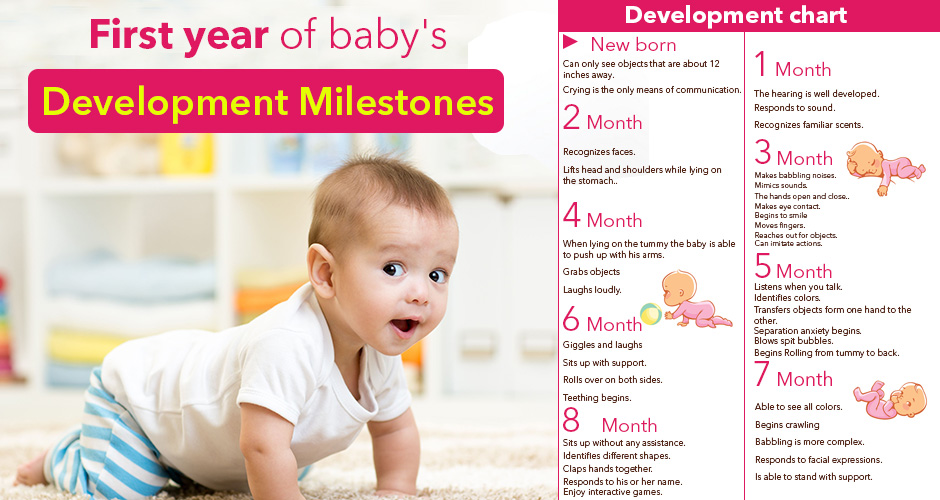 Source: bing.com
Source: bing.comCongratulations on becoming a new parent! Your little bundle of joy has completed one month of their life, and you must be wondering what changes to expect in their developmental and growth milestones. During this month, your baby’s development is rapid, and they are making great strides every day.
Table of Contents
Physical Development
By the end of the first month, your baby will have grown at least an inch or two and added a few pounds to their birth weight. Their head circumference and length will also increase. Their reflexes are getting stronger, and they can turn their head in response to sounds and voices. They will also start to pay more attention to bright lights, patterns, and movements. You can stimulate their sense of touch by providing different textures of fabrics and toys, which will help with their tactile development.
Sleep Patterns
At one month old, your baby will sleep most of the day and night. They will wake up every few hours for feeding and diaper changes. It is important to establish a routine for sleep, so your baby can develop good sleep habits. During the day, allow plenty of sunlight and stimulation to help them distinguish between day and night. At night, keep the lights low and minimize noise to signal that it is time to sleep.
Feeding
Your baby will need to eat every two to three hours, which adds up to about 8-12 feedings a day. You can feed them breast milk or formula, whichever you prefer. Make sure they are latching correctly and are getting enough milk to gain weight. During this time, your baby will also develop the ability to suck and swallow more efficiently, which will make feeding easier and faster.
Social and Emotional Development
During the first month, your baby will start to show their personality and respond to your voice and touch. They will also start to recognize familiar faces and voices, especially their parents. You can start to bond with your baby by providing plenty of skin-to-skin contact, talking to them, and responding to their cries. Babies at this age also enjoy looking at faces, so make sure to engage in plenty of eye contact.
Cognitive Development
During this month, your baby’s brain is developing rapidly. They will start to recognize familiar faces, sounds, and objects. They will also start to understand cause and effect, such as if they cry, you will respond to them. You can help with their cognitive development by providing plenty of stimulation, such as toys with contrasting colors and different textures.
Milestones to Watch For
Every baby is unique and will develop at their own pace. However, here are some common milestones to watch for during your baby’s first month:
- Lifting their head briefly when lying on their tummy.
- Responding to sounds and voices.
- Making eye contact with familiar faces.
- Grasping objects briefly.
- Crying to communicate their needs.
Remember, these milestones are just a rough guideline. If you have any concerns about your baby’s development, always consult with your pediatrician.
Conclusion
Your baby’s first month is an exciting time filled with growth and development. Watching your little one change and grow is truly amazing. Remember to provide plenty of love, care, and stimulation to help them reach their full potential. Enjoy this special time with your baby!
Frequently Asked Questions
Q: Can I spoil my baby by holding them too much?
A: No, you cannot spoil your baby by holding them too much. In fact, holding your baby and providing plenty of skin-to-skin contact is beneficial for their social and emotional development.
Q: How often should I bathe my baby?
A: You can bathe your baby two or three times a week, using a mild soap and warm water. Make sure to clean all their skin folds and dry them thoroughly afterwards.
Q: How can I tell if my baby is getting enough milk?
A: Your baby is getting enough milk if they are gaining weight, producing enough wet and dirty diapers, and seem satisfied after feeding. If you have concerns, consult with your pediatrician.
Q: Can I introduce solids to my baby at one month old?
A: No, you should not introduce solids to your baby until they are at least six months old. Their digestive system is not ready for solid food yet.
Q: How can I help my baby sleep better?
A: You can help your baby sleep better by establishing a routine for sleep, minimizing noise and light at night, and providing plenty of stimulation during the day.
